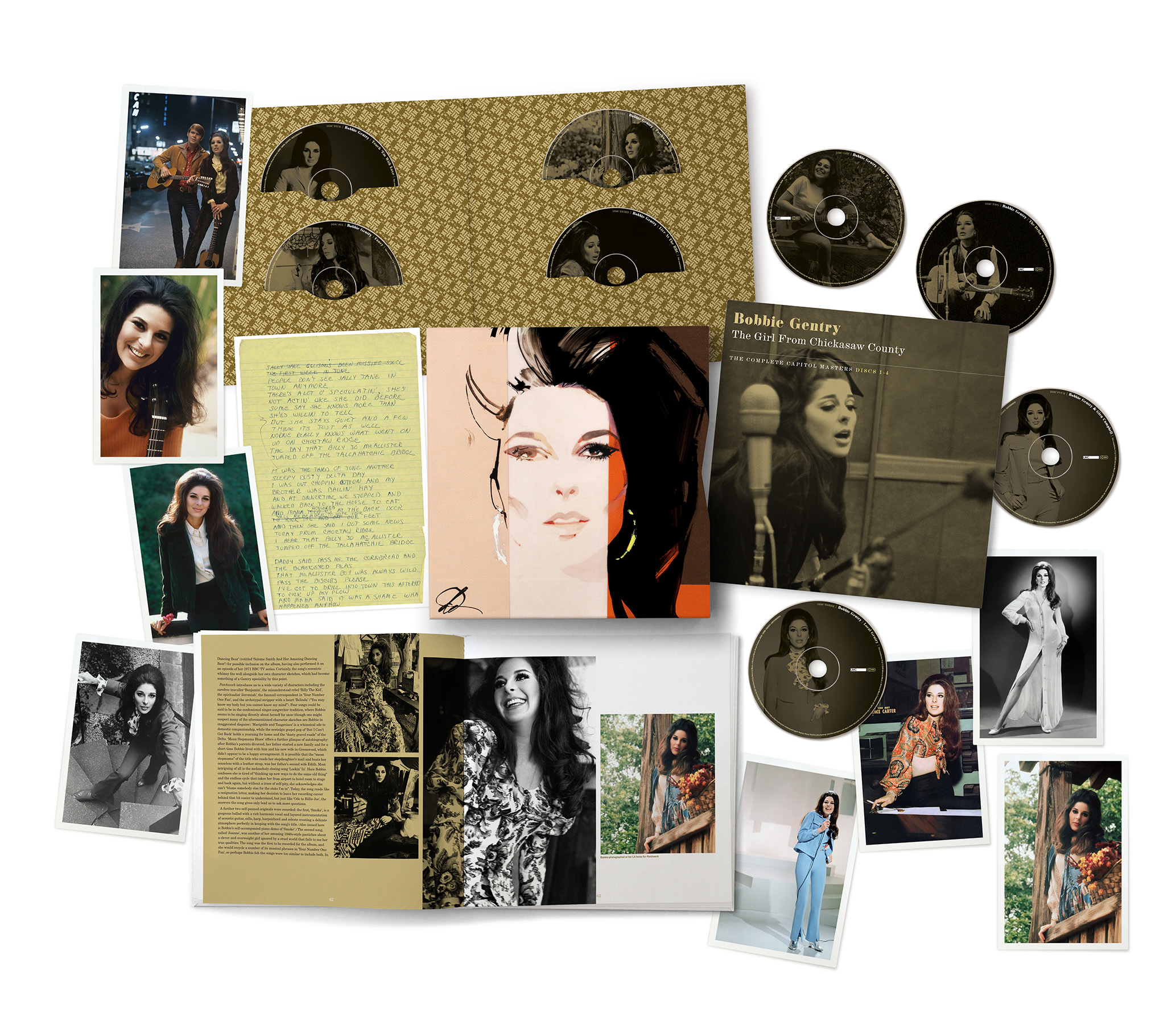
By Jeff Burger
When I saw Don McLean in concert some years ago, he introduced “American Pie” by mentioning that people often asked him what the song meant. “It means,” he noted after a pause, “that I never have to work again.” Bobbie Gentry could undoubtedly say the same thing about her brilliant “Ode to Billie Joe,” which replaced the Beatles’ “All You Need Is Love” on the top of the American charts, stayed there for four weeks in 1967, garnered eight Grammy nominations and three wins, and was later the subject of a film. She never had another Top 10 pop hit in the U.S., but apparently largely as a result of that one record, she is now worth many millions of dollars.
The minor-key number—which, incredibly, was originally slated to be given to another singer and then to be a B side but wound up being her first solo single—is a bona fide classic. Moody orchestration punctuates Gentry’s nuanced vocal, and her enigmatic, sharply honed verse tells a tale that’s as rich and engrossing as anything you’ll find in pop music. Perhaps only the subject of Carly Simon’s “You’re So Vain” has prompted as much speculation as the question of what was thrown off the Tallahatchie Bridge in “Ode to Billie Joe.”
Gentry appeared on the U.S. Top 40 charts three more times, in 1969 and 1970; had some success in the U.K.; and continued performing and recording into the early 80s. Then, unlike McLean, she really did stop working. She gave her last public performance in 1982 at age 40. Since then, the now 74-year-old artist has lived a life so reclusive that it has sparked comparisons to J.D. Salinger and Harper Lee. She has not released any albums, performed any concerts, or even given any interviews.
She did, however, record a good deal before that, and especially for Capitol from 1967 to 1971; and all of the material from those years is contained in a lavish new box set called The Girl from Chickasaw County. It comes with a generously illustrated, 84-page hardcover book that includes a chapter about each of the eight discs. There’s also a set of postcards and a copy of an early draft of Gentry’s handwritten lyrics for “Ode to Billie Joe.”
The box collects all seven of her studio albums from this period—among them a disc of duos with Glen Campbell that features two of her three minor hits. Also here are more than 75 previously unreleased outtakes, demos, and other rarities, such as 26 numbers recorded live at the BBC, where Gentry had her own show for several years. All together, there are 177 well-remastered tracks on eight discs, including more than 80 mostly excellent originals (a few written with collaborators).
You’ll find three versions of “Ode to Billie Joe”—the hit single and two live readings—plus a few other songs, such as “Chicasaw County Child,” that represent obvious attempts to duplicate the hit’s magic. There’s also lots of material from a motley group of well-known writers, including John Lennon and Paul McCartney, Burt Bacharach and Hal David, Laura Nyro, Willie Dixon, Harry Nilsson, Webb Pierce, Kenny Rankin, Boudleaux Bryant, Doug Kershaw, Donovan, Paul Simon, Randy Newman, and James Taylor.
Gentry proves to be a fine singer—and as versatile as her song sources might suggest. She’s equally at home, for example, with material as diverse as Bacharach and David’s “This Girl’s in Love with You,” Jerry Jeff Walker’s “Mr. Bojangles,” and Mac Davis’s “In the Ghetto” (the Elvis hit). Her sultry, self-assured vocals often remind me of those on Dusty Springfield’s Dusty in Memphis, which is high praise indeed. (In fact, this box includes an excellent cover of Springfield’s “Son of a Preacher Man.”) At her best, Gentry displays an extraordinary amount of vulnerability, intimacy, and emotion.
Like many career-spanning boxes of this length, The Girl from Chickasaw County is uneven: some of the material is fluffy and some of the performances are below par. And nothing here suggests that Gentry’s best-known track isn’t also her best. Still, this box offers compelling evidence that she should be remembered as a whole lot more than a one-hit wonder.
________________________
Jeff Burger’s website, byjeffburger.com, contains more than four decades’ worth of music reviews and commentary. His books include the recently published Dylan on Dylan: Interviews and Encounters as well as Lennon on Lennon: Conversations with John Lennon, Leonard Cohen on Leonard Cohen: Interviews and Encounters, and Springsteen on Springsteen: Interviews, Speeches, and Encounters.
